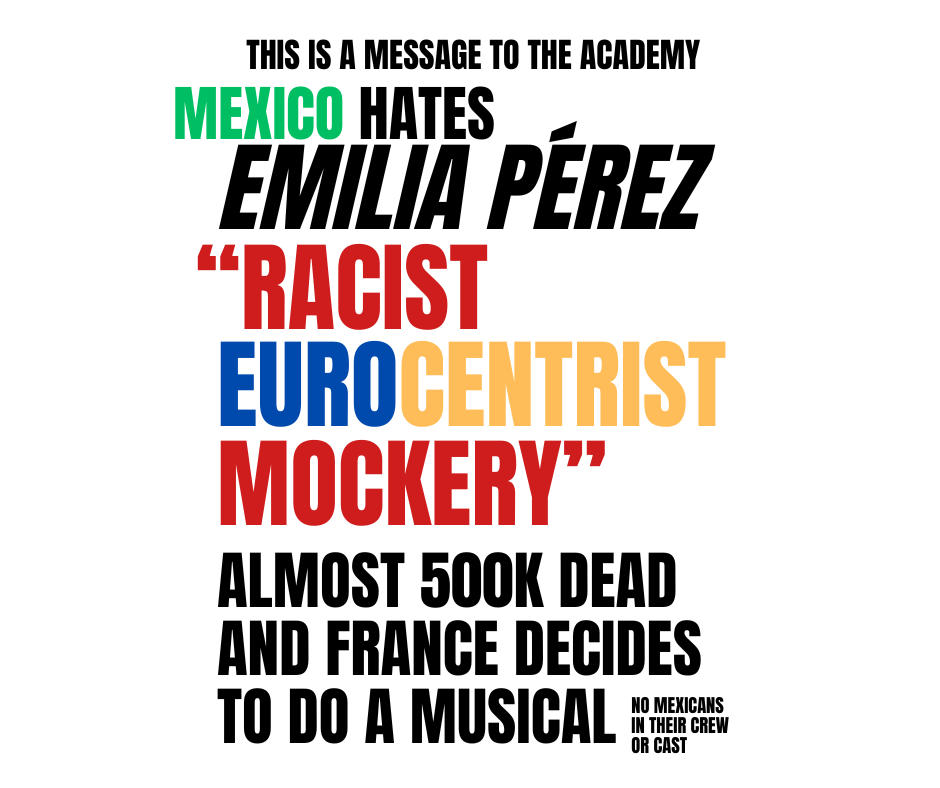Awards Season is mainly composed of Film Festivals like the Berlin International Film Festival, the Cannes Film Festival, the Venice International Film Festival, etc. They also include more popular ceremonies like the Golden Globes, BAFTA Awards, Academy Awards (Oscars), Emmy Awards, Razzie Awards, etc.
The point of awards is to recognize and celebrate the best work, in film, television, music, and theater. As much as awards promote celebration and congratulation to the best artistic work, they can become counterproductive. They encourage competition, they showcase talent, and inspire creativity. While I agree on showcasing talent and inspiring creativity, I don’t think promoting competition between creators is always good because egos can get involved. Is that the point about art?
Competition revolves around pyramidal growth, influenced by the capitalist essence of our environment. But art is supposed to transcend materialism. The point of being an artist, a professional in any humanities field, should transcend pyramidal growth. Artists who obsess over their image and their position have a bigger priority than the representation of a message. If their priority is to win an award, improve their position in society, and their artistic goals do not transcend themselves or a system, how can they assure an authentic portrayal of such a message?
Art is transcendental in a philanthropic sense. If life has no meaning, the meaning is sought to provide the perception that life is worth living. The point of art, being inherently reflective, is keen on contemplating, understanding, and looking to improve the problems society has. That is, to work as artists and as humans, to optimize the quality of life and the human experience. Just as families, whose ancestors have worked for the following generations to live a more comfortable life, with access to more opportunities; or as feminists have done in previous years and decades for contemporary women to enjoy freedoms that other generations did not have. Art is to bet on future generations and tell them: “look at this problem, look how it harms us, let’s look for solutions”. Perhaps my generation can reflect and represent a problem, but two or three more generations successfully solve it.
What is the use of art as a material means to improve my position? In any case, I am going to die, life in general has no sense, and after my death, those prizes will remain on the planet until they disintegrate and decompose. What will last, at least for several more centuries, are humans. How will the life of future humans be if previous generations do not warn them of dangers or problems they should consider?
In an era of anti-intellectualism propitiated by techno-feudalism, hyper consumerism, and hyper capitalism, fighting for the human transcendence of the purpose of art is extremely important and goes beyond a prize.
Anti-intellectualism by J.D.Vance (2025):
“…The universities, which control the knowledge in our society, which control what we call truth and what we call falsity, that provides research that gives credibility to some of the most ridiculous ideas that exist in our country… We have to honestly and aggressively attack the universities in this country… what we need more than inspiration is we need wisdom, and there is a wisdom in what Richard Nixon said approximately 40, 50 years ago. He said, and I quote, ‘The professors are the enemy’.”

It’s difficult to evaluate art
Awards are also very subjective and evaluating art can be an impossible task. Trying to evaluate which movie is the best out of all the good popular movies with celebrity actors without any bias can be very hard. What I consider the best may not be what my friend or what my colleagues consider best. When I was watching Conclave in early January, I was mesmerized by the photography. I was certain this film was going to be the Best Cinematography winner. However, the movie only won the BAFTA for it. The movie wasn’t even nominated for Best Cinematography at the Academy Awards. In another shocking moment, this year Emilia Pérez with a 2.1 rating on Letterboxd received 13 nominations and was surrounded by a lot of controversy: GLAAD saying the portrayal of the movie to be regressive on the trans experience, a horrible use of Spanish, and the Mexican community outraged with the stereotypes and lack of sensitivity from the movie. It makes you wonder how the voting works.

Who are the voters?
How can we know voters aren’t biased if evaluating art is very subjective and difficult? The voters for awards vary by the type of award and the organization that presents it. The Academy of Motion Picture Arts and Sciences (AMPAS) is the governing body that votes for the Oscars. Members are divided into branches based on their film production discipline. Members of each branch nominate candidates for their branch’s categories. All members vote for Best Picture. Voting is done by secret online ballot.
BIFA’s voting group includes past nominees and winners, filmmakers, and top film professionals. BIFA also has two independent juries that decide winners in some categories.
The Academy’s Guide to Movies Website says: “Established in 1929, the Academy of Motion Picture Arts and Sciences is home to a global membership of more than 10,500 of the most accomplished film industry artists and leaders, across 18 branches. The branches range from acting, directing, cinematography, film editing, costume design, sound, hair and makeup, and more”.
Why do the same set of movies get nominated for most awards?
Another thing to consider is that the same set of movies are usually nominated for most awards. Perhaps those movies are considered really good, they are very popular, they have famous actors in their cast, and the cast and producers start “campaigning” for such awards through marketing tools and publicity for the movie. This way the films are put at the center of the media to gain focus. The same studios target the same campaigns at potential voters in all bodies, a part of it are statistical probabilities and the law of averages. Many groups of voters are believed to cancel out radical options and choose those nominees in the middle. According to Karina Longworth in Vanity:
“More often than not, consensus victories go not to the best or most innovative films, but to the films that pretty much everyone is pretty much okay with. The critics group that I belong to, the New York Film Critics Online, gave nominations this year to a number of unconventional choices: Sam Rockwell was a finalist for best actor for Moon; John Hillcoat made the shortlist of directors for The Road; both Adventureland and Two Lovers were finalists for best picture. But when it came time for 30+ critics to sit in a room and pick one winner in each category, we came to virtually the same middle-of-the-road decisions as nearly every other critics group… It wasn’t surprising that the populist choice—the film with a marketing campaign targeted to fill every multiplex in America, versus the film released on four screens with no TV advertising to speak of—won the popular vote.” (Longworth, 2009)
Also, the Best Actor, Best Actress, or Best Director who win are the ones who starred in the Best Picture Winner. Surely, there is an influence, if voters tend to vote for the middle and the more popular win, wouldn’t the most popular actor/actress/director be linked to the Best Picture?

Awards getting unnecessarily politicized
What bothers me about awards is that sometimes they get unnecessarily politicized. I understand winners of a movie that conveys a specific message will talk about that message. For example, when Mikey Madison won the Oscar, she thanked sex workers in her acceptance speech and said she “will continue to support and be an ally”.
Many people also use the platform at the Oscars or other awards to spread awareness on several issues. While that may be helpful to raise awareness, many times it is not productive because those people are in the position to do something about such issues, and instead of doing something, they ask viewers who are in no position of power to do something. Many invites sometimes protest issues perpetuated by the industry. For example, when Kristen Stewart was barefoot at the Cannes Film Festival. She removed her Christian Louboutins and said, “If you’re not asking guys to wear heels and a dress, then you can’t ask me either”.
These types of protests make sense because she is protesting against the Awards ceremony’s standards, and she can’t do anything about it individually. However, for the 2020 Oscars, Natalie Portman paid tribute to the snubbed female directors by wearing their names on her cape. However, internet users quickly discovered she owns a production company called “Mountain A” in which all the directors are men, except her. People argued that she is in a position in which she could work against the sexism and misogyny in the industry and change it from inside.
Twitter users said:
“In a nearly 30 year career she has worked with 2 female directors. Be the change you want to see, do the hard work, take the first steps. I applaud you for the dress, but let’s do, not perform”.
“Amazing gesture! If only the production company she owns and runs would hire female directors other than *Natalie Portman*, then it might not be seen as quite so performative”.
In another example, Ricky Gervais said in the 2020 Golden Globes to the invites they were in “no position to lecture the public” since many times they work for companies like Amazon or Apple TV+, and while the narratives in their films are progressive and activistic, those companies currently have sweatshops in Asia.
I don´t fully agree with that statement because as artists, writers, directors, actors, getting access to work opportunities is very narrow. Only 2% of actors make a living solely from acting. If many artists and creators are allowed to perform, they will take the opportunity. However, I do agree that many of them are not actively participating in improving issues in the world but are only complaining about it to the public. Most viewers are busy working and taking care of their families, and they watch movies to relax, enjoy their free time, and take a break. What are they going to do about the problems elite artists complain about?
Another example of a protest is in 1973, Marlon Brando sent Sacheen Littlefeather to the Oscars to reject the Best Actor award on his behalf. Littlefeather was a member of the Apache Tribe. She protested the film industry’s treatment of Native Americans and Hollywood’s portrayal of Native Americans. She protested to draw attention to the standoff at Wounded Knee and the poor treatment of Indigenous peoples in television and films. The Academy sent Littlefeather a statement of apology in June 2022. The Brando/Littlefeather incident has become a litmus test around celebrity activism, Littlefeather also worked in hospice care, produced films about Native Americans, and continued her activism for Native American issues.
This is coherent because Marlon didn’t ask the public to do anything, Littlefeather rather asked the production companies to stop exoticizing and stereotyping Native Americans. The industry, since its origin, has been exoticizing and stereotyping every ethnicity in exception to Caucasian communities. We only have to look at how much Emilia Pérez exoticized and stereotyped Mexican society, and Jacques Audiard even admitted he didn’t do any research about the movie and said “Spanish is a language of developing countries, it’s a language of countries of few means, of poor people, of migrants…”
Awards can also get politicized in the way that rivals start exposing or shading one another to make them seem unworthy of an award due to their lack of morality or ethics. For example, at the last Oscar Awards, Karla Sofía Gascón said about fellow nominee Fernanda Torres, “What I don’t like are social media teams — people who work with these people — trying to diminish our work, like me and my movie, because that doesn’t lead anywhere. You don’t need to tear down someone’s work to highlight another’s. I have never, at any point, said anything bad about Fernanda Torres or her movie. However, there are people working with Fernanda Torres tearing me and ‘Emilia Pérez’ down. That speaks more about their movie than mine.”
On the other hand, we have the Razzie awards. The Golden Raspberry Awards are a satirical award show that recognizes the worst films of the year. The Razzies are presented annually, usually on “Oscar Eve”.
This year the award was given to Francis Ford Coppola, named worst director for his self-financed project “Megalopolis”. Coppola’s acceptance speech hit the nail on the head by being coherent, especially with today’s problems within the industry, considering the optimization of content to suffice hyper consumerism. Especially with the rise of streaming platforms and the decrease in theater sales tickets, and the lack of income from selling the Movies on DVD or renting them in spaces like Blockbuster
“I am thrilled to accept the Razzie award in so many important categories for ‘Megalopolis’ and for the distinctive honor of being nominated as the worst director, worst screenplay, and worst picture at a time when so few have the courage to go against the prevailing trends of contemporary moviemaking! In this wreck of a world today, where ART is given scores as if it were professional wrestling, I chose to NOT follow the gutless rules laid down by an industry so terrified of risk that despite the enormous pool of young talent at its disposal, may not create pictures that will be relevant and alive 50 years from now.
What an honor to stand alongside a great and courageous filmmaker like Jacques Tati who impoverished himself completely to make one of cinema’s most beloved failures, ‘PLAYTIME’! My sincere thanks to all my brilliant colleagues who joined me to make our work of art, ‘MEGALOPOLIS,’ and let us remind ourselves that box office is only about money, and like war, stupidity and politics has no true place in our future.”
Megalopolis” made $11.5 million at the box office from a budget of $120 million, according to Forbes.

Not everything about awards is absurd
Although this entire perspective on awards may seem pessimistic, not everything is pointless. In many cases, awards visibilize sidelined topics and raise awareness on them. For example, this year “No Other Land” won for Best Documentary. It was made by four Palestinian-Israeli activists in what they describe as an act of resistance on the path to justice during the Israeli–Palestinian conflict. It was filmed between 2019 and 2023 and shows the destruction of a community in the occupied West Bank who had been resisting eviction following the declaration of an Israeli “firing zone”. Directed by Basel Adra, Hamdan Ballal, Yuval Abraham, and Rachel Szor.
Their winning speech:
“We call on the world to take serious actions to stop the injustice and to stop the ethnic cleansing of Palestinian people. About two months ago, I became a father, and my hope to my daughter that she will not have to live the same life I’m living now. … ‘No Other Land’ reflects the harsh reality that we have been enduring for decades and still resist.
We made this film, Palestinians and Israelis, because together, our voices are stronger. We see each other, the destruction of Gaza and its people, which must end, the Israeli hostages, brutally taken in the crime of Oct. 7, which must be freed. We live in a regime where I am free under civilian law and Basel is under military laws that destroy his life and he cannot control. There is a different path, a political solution without ethnic supremacy, with national rights for both of our people.
Why can’t you see that we are intertwined, that my people can be truly safe if basil’s people are truly free and safe?” (Adra & Abraham, 2025).
As I have said it before, the purpose of film and art is to spread awareness, convey a message, portray a problem, and express feelings and sentiments. It will always inherently contemplate the nature of its social and political context. Awards can congratulate films that succeed or fail at it. We should focus on the pieces that successfully convey a message, trying to show the public a problem worthy of being analyzed. Awards may be harmful in many ways, but they can also be helpful in many others. For example, they increase viewership of the nominees and winners, many of whom are worth watching, questioning, and understanding.
This type of visibility given to independent films can also show a deeper, unlooked perspective to widely commented issues. As viewers we can enjoy Awards Season and root for our favorite actors, directors, writers, cinematographers, etc., and keep an open mind of the pros and cons they come with.






I don’t think the title of your article matches the content lol. Just kidding, mainly because I had some doubts after reading the article. https://www.binance.info/register?ref=IXBIAFVY
Your article helped me a lot, is there any more related content? Thanks!
I don’t think the title of your article matches the content lol. Just kidding, mainly because I had some doubts after reading the article. https://accounts.binance.com/sk/register?ref=WKAGBF7Y
Sau đây là phần giới thiệu đôi nét về nhà cái slot365 apk . Đây là một nhà cái thuần Việt, nên có đầy đủ các game mà người Việt hay chơi. Tại nhà cái chúng tôi, bạn có thể tìm thấy những trò chơi quen thuộc như Mậu Liêng, bài Tiến Lên, Xóc đĩa và nhiều trò chơi hấp dẫn khác. TONY12-12
Can you be more specific about the content of your article? After reading it, I still have some doubts. Hope you can help me.
Can you be more specific about the content of your article? After reading it, I still have some doubts. Hope you can help me.
Your article helped me a lot, is there any more related content? Thanks! https://accounts.binance.com/register-person?ref=IXBIAFVY
Thank you for your sharing. I am worried that I lack creative ideas. It is your article that makes me full of hope. Thank you. But, I have a question, can you help me?
Can you be more specific about the content of your article? After reading it, I still have some doubts. Hope you can help me. https://www.binance.info/fr/register?ref=T7KCZASX
Your point of view caught my eye and was very interesting. Thanks. I have a question for you.